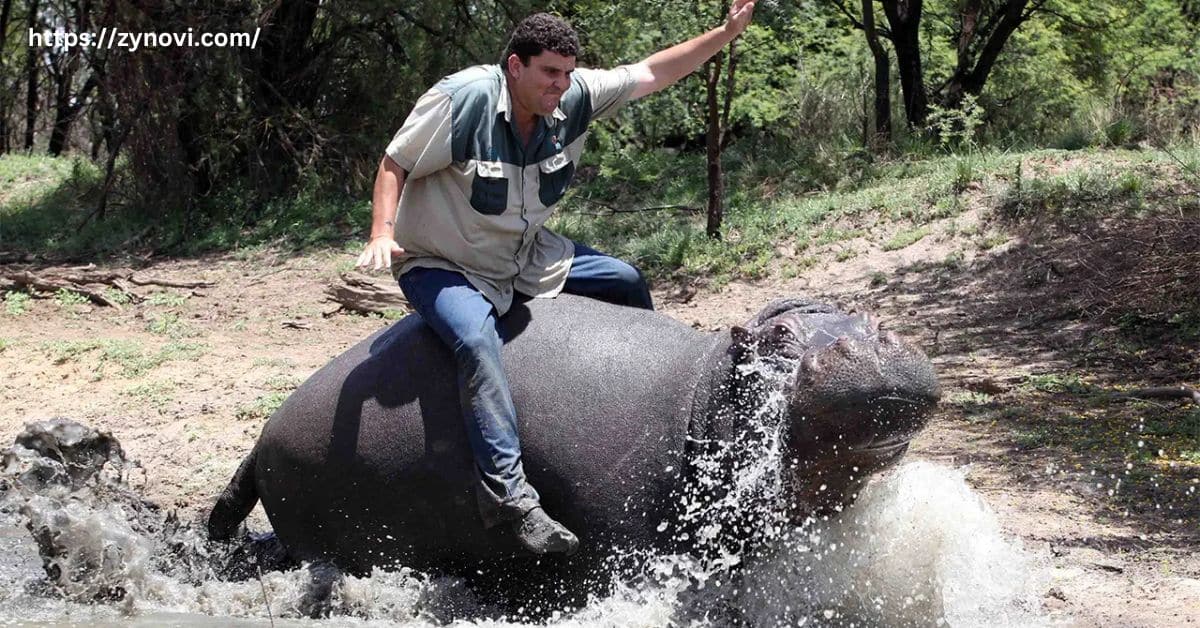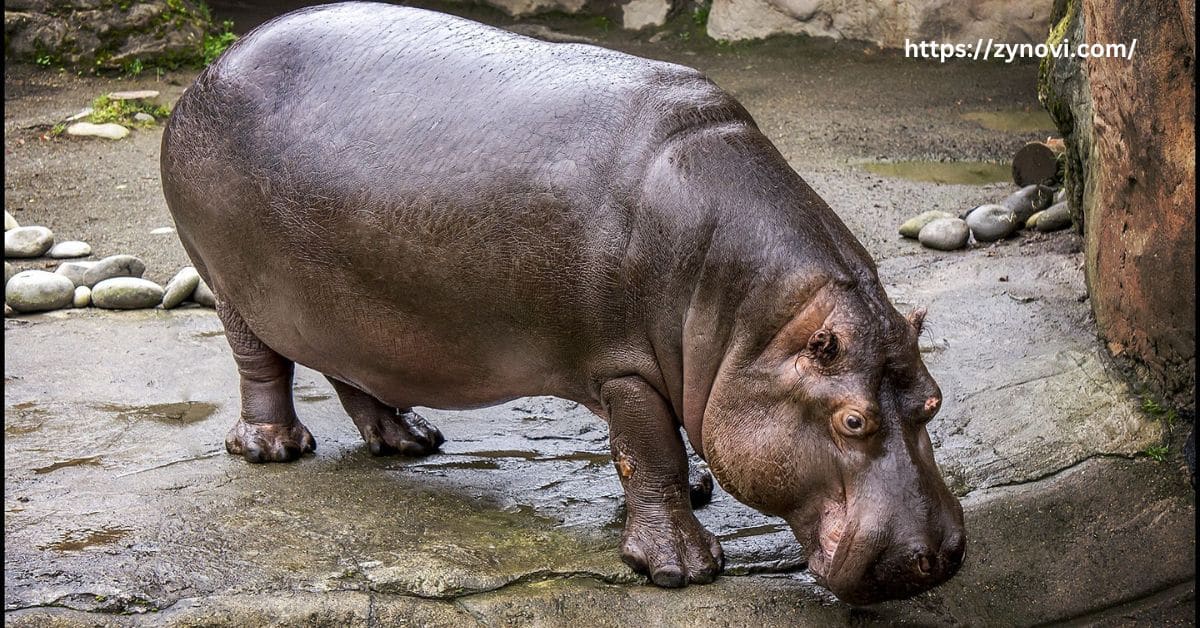Do Hippos Attack Humans? Yes, hippos do attack humans, often due to territorial aggression, defensive instincts, or unexpected encounters.
If you’re wondering whether these massive creatures pose a threat to people, you’re not alone. Despite their seemingly calm demeanor, hippos are one of the most dangerous animals in Africa. Their surprising aggression can leave you questioning everything you thought you knew about these semi-aquatic giants.
But why do hippos attack humans, and how can you stay safe around them? In this article, we’ll dive into the truth behind hippo behavior, the risks involved, and practical tips for avoiding dangerous encounters. Keep reading to learn what you need to know before venturing near their territory!
What Are Hippos? Understanding These Massive Mammals
Hippos, or hippopotamuses, are large semi-aquatic mammals native to sub-Saharan Africa. Despite their somewhat humorous appearance, these animals are incredibly powerful and territorial, capable of inflicting significant harm on humans.
Physical Characteristics
Hippos are massive creatures. Here are some impressive facts about their size and appearance:
- Weight: Adult hippos can weigh up to 4,000 pounds (1,800 kg), making them the third-largest land mammal after elephants and rhinos.
- Length: Hippos can grow up to 16 feet (5 meters) in length, which is roughly the size of a large car.
- Tusks: These animals are equipped with large tusks, which can grow up to 20 inches (50 cm) long. They use these tusks for defense, and their bite force can crush bones.
- Skin: Hippos have thick, tough skin that secretes a natural substance often called “blood sweat.” This acts as both a sunscreen and an antimicrobial layer, protecting them from the sun and bacteria in their aquatic environments.
- Speed: Despite their bulk, hippos are incredibly fast. On land, they can reach speeds of up to 30 mph (48 kph), which is faster than most humans can run.
Habitat and Diet
Hippos are nocturnal grazers, feeding primarily on grasses during the night. They can consume up to 80 pounds of grass in a single feeding session.
These massive mammals are typically found in rivers, lakes, and swamps, where they remain submerged during the day to keep cool and protect their sensitive skin from the harsh sun.
The water serves as a critical resource for territorial behavior, providing both a safe haven and a vital space for marking their domain.
Why Do Hippos Attack Humans?

Hippos are not naturally inclined to attack humans, but when they do, the consequences are often severe.
Hippo attacks on humans are responsible for approximately 500 deaths annually, making them one of the deadliest animals in Africa. Understanding why these attacks happen is key to preventing them.
Territorial Instincts
Here’s the information in table format:
| Territorial Behavior | Details |
|---|---|
| Territorial Instincts | Hippos are highly territorial, especially around water bodies like rivers and lakes. They defend these areas aggressively. |
| Reaction to Intruders | Hippos react aggressively to perceived intruders, whether human, boat, or another animal. |
| Common Aggressive Actions | – Capsizing boats- Charging at boats- Attacking humans in boats or water. |
| Warning Signs | – Yawning (displays large teeth)- Grunting (a sign of discomfort or threat)- Splashing water (indicating agitation). |
| Dangerous Areas | Boating and fishing in hippo-prone areas can be particularly dangerous due to these territorial behaviors. |
Defensive Instincts
Mother hippos are particularly protective of their young, and if they sense a threat to their offspring, they will react with intense aggression. Defensive aggression is often the cause of hippo attacks when they feel their calves are in danger.
It’s important to note that even if a hippo seems calm, it can become highly defensive when it perceives a threat to its family or itself.
Mating Season Aggression
Another time when hippos can become aggressively defensive is during the mating season. Male hippos are especially territorial during this period, as they compete with each other for dominance and mates.
The increase in mating-season aggression makes encounters with hippos during this time especially dangerous.
Unanticipated Human-Hippo Encounters
Sometimes, unexpected human-hippo encounters occur when people venture too close to hippo habitats.
This can happen when swimming in rivers, walking near water sources, or fishing in hippo territory. In such cases, the hippo may charge simply due to surprise or because it feels cornered.
Are Hippo Attacks Dangerous?

Do Hippos Attack Humans? It’s one thing to hear about hippo aggression, but it’s another to understand how dangerous these animals can be. The sheer power and speed of a hippo make it a formidable threat.
Attack Methods
Hippos don’t just rely on their tusks in an attack; they have multiple ways of inflicting harm:
- Bite Force: A hippo’s bite force is incredibly strong, capable of crushing bones and causing severe injuries. The hippo bite force is so powerful that it can easily tear through flesh, making their attacks lethal.
- Charging: When hippos charge, they can easily run 30 mph (48 kph), catching unsuspecting humans or boats off guard. If a hippo charges, it’s often to defend itself or its territory.
- Crushing: Hippos can use their immense weight to crush their prey, and this method can result in fatal injuries. Many victims of hippo attacks die from crushing or drowning.
Lethality of Hippo Attacks
Although the majority of hippos are not actively seeking humans to harm, hippo-related deaths per year still range around 500 fatalities. The primary causes of death in hippo attacks are crushing, drowning, and tusk-inflicted injuries.
The lethality of hippo attacks is often underestimated, as many people view them as peaceful giants. But these animals are aggressive when threatened and are capable of inflicting serious harm.
How to Safe From Hippo Attacks?
Given their aggressive nature, it’s important to understand hippo safety and know how to avoid dangerous encounters. Here are some practical tips for preventing hippo attacks:
Avoid Hippo Territories
The most effective way to stay safe around hippos is by avoiding their territories altogether. In Sub-Saharan Africa, it’s crucial to steer clear of boating or fishing in areas known to be hippo habitats, such as rivers, lakes, and swamps.
These environments are where hippos spend much of their time, and venturing into these areas increases the risk of an encounter.
Always research the local wildlife before engaging in any activities near water bodies.
Respect Warning Signs
If you’re in an area where hippos live, be aware of their behavioral cues:
- Yawning: Hippos often yawn to display their large teeth. If a hippo yawns near you, it may be signaling aggression.
- Grunting: A hippo’s grunt can signal agitation, and a loud or sudden grunt may indicate an impending attack.
- Splashing Water: Hippos splash water when they feel threatened or when they want to assert dominance.
Remain Calm During an Encounter
If you find yourself in an unexpected encounter with a hippo, remaining calm is the most important thing you can do.
Sudden movements can provoke an attack, so try to move away slowly and deliberately without making any abrupt gestures.
If you’re in the water, avoid panicking swim calmly and try not to splash, as the noise and movement can attract the hippo’s attention.
Always keep your distance and be mindful of its behavior to avoid escalating the situation.
Emergency Response
If you’re in a dangerous situation, there are a few survival strategies to follow:
- Play dead: In certain situations, playing dead may work to avoid further aggression. This tactic works in some animal encounters, though it’s not foolproof.
- Get out of the water quickly: If you’re in a boat or near the water, moving away as quickly as possible is often the best option.
Final Verdict
The evidence is clear: hippos are dangerous, and hippo attacks on humans should not be underestimated. Whether through territorial aggression, defensive instincts, or unexpected encounters, hippos can become a deadly threat.
The best way to stay safe is to respect hippo territories, understand their behaviors, and avoid risky interactions. With the right precautions, you can reduce the chances of encountering these powerful creatures.
FAQs
Are hippos aggressive to humans?
Yes, hippos can be aggressive, especially when defending their territory or young, or during mating season.
Will a hippo attack you if it sees you?
A hippo may attack if it feels threatened or perceives you as an intruder in its territory, especially near water.
Has anyone ever survived a hippo attack?
Yes, some individuals have survived hippo attacks, but many suffer serious injuries, including crushing or tusk wounds.
What to do if a hippo is chasing you?
If a hippo is chasing you, try to find shelter or a solid object to put between you and the animal, and avoid water at all costs.
Conclusion: Do Hippos Attack Humans?
In conclusion, while hippos may appear calm and docile, their territorial nature and aggressive tendencies make them one of the most dangerous animals in Africa. These massive creatures can become highly defensive, especially during mating season or when protecting their water territories.
Understanding their behavior and recognizing warning signs is essential to staying safe in hippo-prone areas. It’s important to exercise caution around water sources where hippos reside, as their speed, strength, and unpredictable aggression can turn a peaceful encounter into a dangerous situation in an instant.










